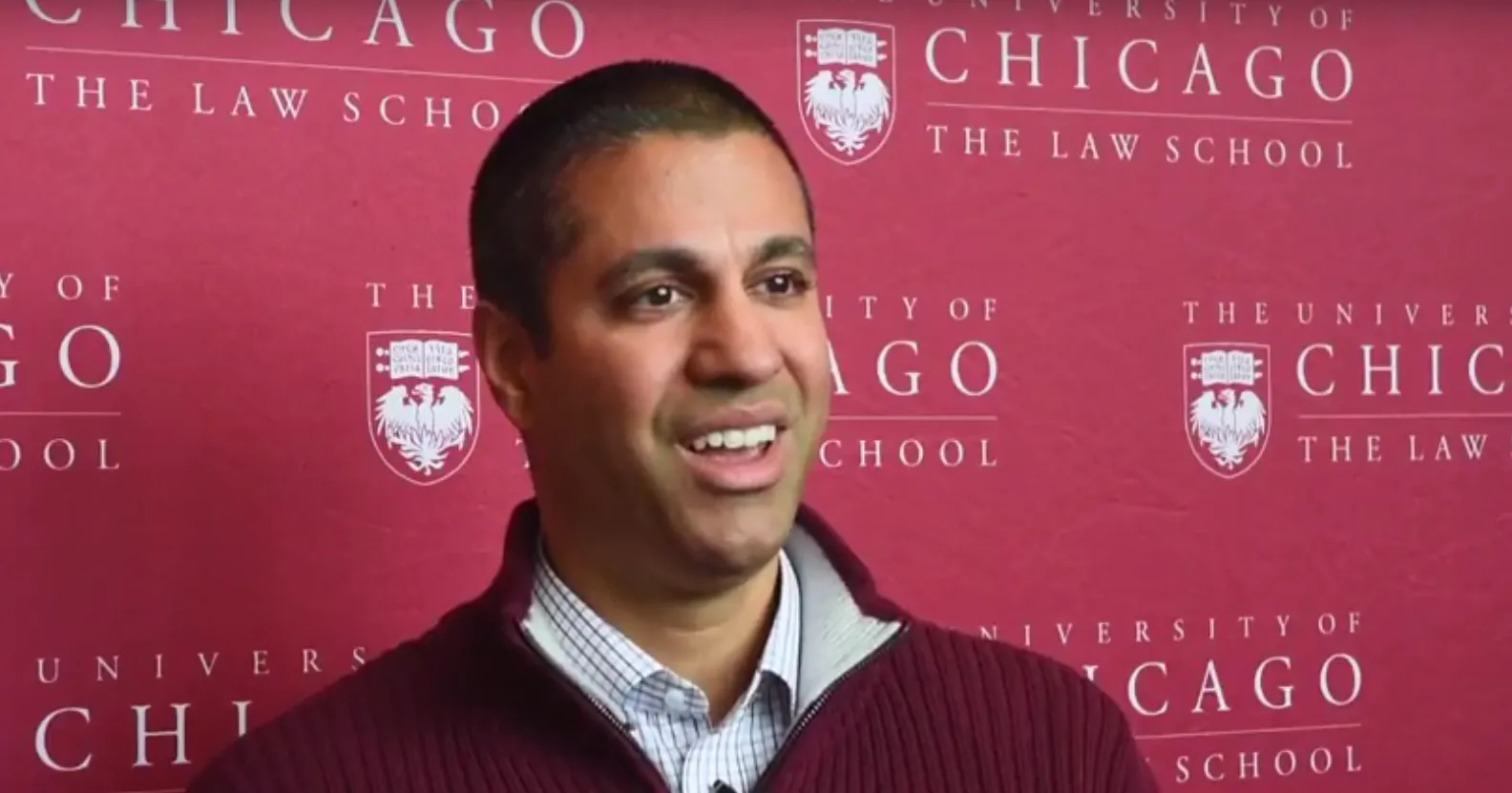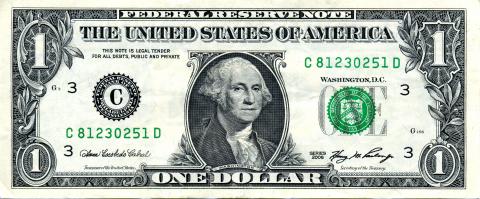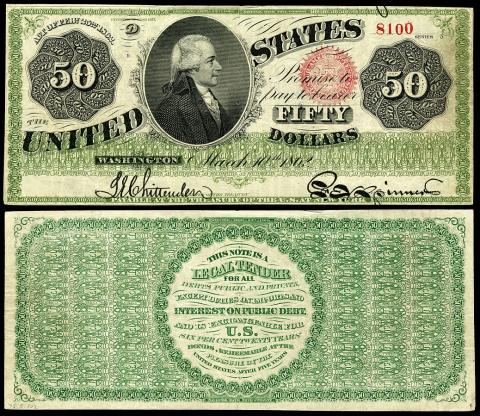My Chicago Law Moment: How a Dollar Bill, David Currie, and a Long-Settled Debate Shaped Ajit Pai, ’97

It started with eleven words, all caps, on a US dollar bill. Eleven ordinary words that appear on every Federal Reserve Note, to the left of the presidential portrait, where they largely go unexamined and unconsidered—except by people like Ajit Pai, ’97, who noticed them in law school and got to thinking.
THIS NOTE IS LEGAL TENDER FOR ALL DEBTS, PUBLIC AND PRIVATE.
Interesting words, Pai thought as he studied the bill he’d pulled from his wallet. Where did they come from? And what process had landed them there?
The words weren’t particularly relevant to Pai’s life beyond the status they conferred upon the paper in his billfold, but the Law School had instilled in him an appreciation for off-the-beaten-path inquiry. Soon he was in the library, reading an article that mentioned the Civil War-era battle over legal tender.
It had been quite the battle, Pai learned: the congressional act authorizing greenbacks helped finance the costly Civil War but ultimately led to a years-long controversy that played out in both the 37th Congress and the courts.
“During the Civil War, this was a really big deal, the battle over legal tender,” Pai said. “There was a big constitutional debate about it.” Congress had wrestled over whether the power to make legal tender was "necessary and proper" to the execution of enumerated legislative powers. In 1870, the US Supreme Court declared this paper currency to be a violation of the due process and takings clauses of the Fifth Amendment in Hepburn v. Griswold—a case that was overturned the following year in the Legal Tender Cases. All told, the issue took about a decade to resolve.
Reading references to these skirmishes, however, served only to stoke Pai’s curiosity. And so he went to see Law School Professor David Currie, a noted constitutional scholar whose paper on the Constitution in Congress was among the articles Pai was editing as a member of the University of Chicago Law Review. Currie encouraged Pai to read through the Congressional Globe, a mid-nineteenth-century record of congressional debates, and Pai happily followed through.
“I opened up those musty pages to try to find out what it was that the congressmen and senators were debating,” Pai said. “I ended up writing a paper about the constitutional debate over the Legal Tender Act.”
The paper, “Congress and the Constitution: The Legal Tender Act of 1862,” eventually appeared in the University of Oregon Law Review in the summer of 1998, the year after Pai graduated from law school.
“When it got published, I remember sending it to Professor Currie, and he signed it and sent it back to me—and I still have this in my library at home—[he wrote]: ‘In remembrance of our joint labors in these vineyards,’” Pai said. “It was such a nice capstone to this intellectual experience.”
Looking back, Pai chuckles: it’s funny, he said, that important lessons sometimes emerge in the most unexpected ways.
The topic “will never move legal scholarship and isn’t the most current debate—most people accept that legal tender is constitutional,” Pai said. “But that process of coming up with an idea and following it … [and] digging for the facts, and trying to create something that didn’t exist before—that’s something I find very relevant in my current work.”
Today, Pai is the chairman of the Federal Communications Commission. He encounters new topics all the time—and his approach is very much a product of the Law School, and one shaped by experiences like the one he had with Currie. He revels in opportunities to learn something new or bring novel thinking to an issue. Pai might meet with Facebook executives to learn how the next generation of virtual reality gaming could thrive with 60-to-70 gigahertz spectrum or talk with experts who can explain how and why stringing fiber through the Louisiana bayou is technically difficult.
“These are the kinds of things I didn’t know before, but I love learning about them,” Pai said.
“And that,” he added, “is a gift Professor Currie gave me.”
My Chicago Law Moment is a series highlighting the Law School ideas and experiences that continue to resonate after graduation. Video produced by Will Anderson.


